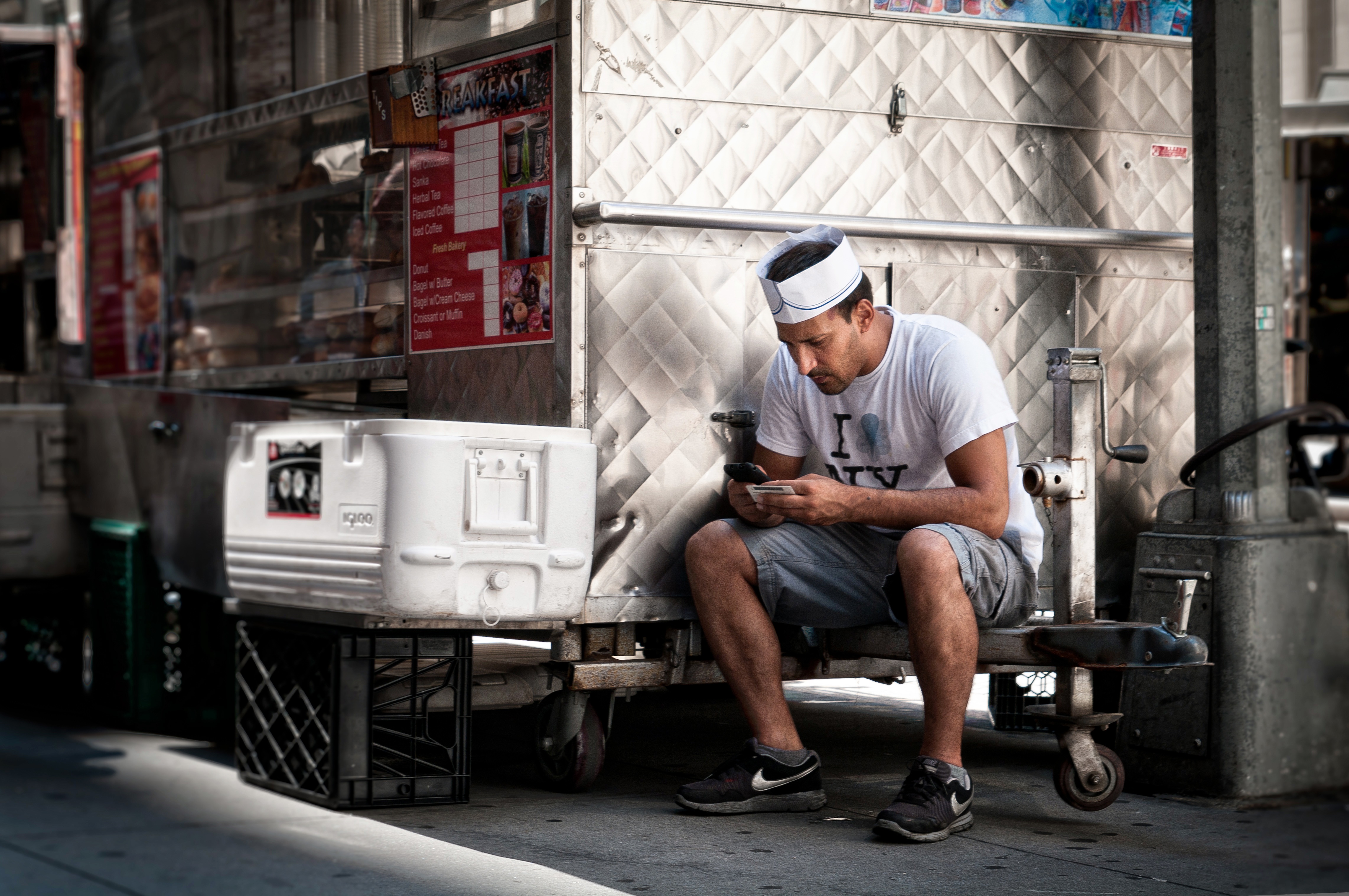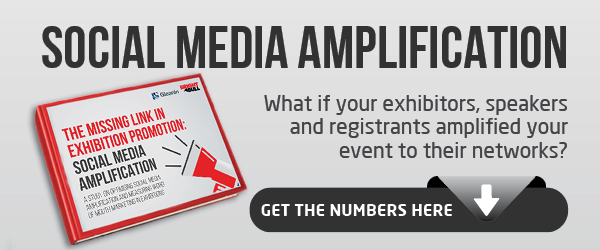 Social media and event marketing are not natural bedfellows time or culture wise, even though social media marketing for events can be one of the most effective channels. That’s because event marketers are used to doing a marketing task and crossing it off their list. Social media isn’t like that unfortunately - it's an ongoing effort requiring the marketer to be “present” over the full campaign. Event marketers also tend to lean towards old school, with outbound “broadcast styles of communication (which is our mission to change!)
Social media and event marketing are not natural bedfellows time or culture wise, even though social media marketing for events can be one of the most effective channels. That’s because event marketers are used to doing a marketing task and crossing it off their list. Social media isn’t like that unfortunately - it's an ongoing effort requiring the marketer to be “present” over the full campaign. Event marketers also tend to lean towards old school, with outbound “broadcast styles of communication (which is our mission to change!)
As a combination it can mean social media for events is very tricky for marketers to get right. So here's our 10 easily digestible tips on social media marketing for events - in 140 characters or less:
1. Make #socialmedia more social. Start conversations with influencers instead of pumping out links.
It can seem scary to start a conversation in an area where you're not an expert, but the best conversationalists are those who ask smart questions and listen more than they talk. Ask your influencers their opinions on a topic or ask them to share what they're reading right now. You can also gather questions from your audience and pose them.
2. Focus on your audience’s interests and pain points and less on #socialmedia rankings, followers and algorithms.
Trying to cheat the system and get dodgy tools to build a big following is a real no-no. It doesn't help anything other than your ego. Beyond those grey area tactics, the numbers can still only tell you so much. The quality of the conversations you are having is ultimately what will engage people with your event brand and get them to book.
3. Tell a story bigger than your event. Tap into industry trends and news on #socialmedia, not just event stuff.
You don't have to talk about your event all the time. In fact, you shouldn't! People come to your event to hear from others in their profession who are at the forefront of the thinking in the industry. Nothing reassures them of your ability to deliver that than having your finger on the pulse of what's going on in that sector.
4. #Socialmedia technology should enhance your relationships as well as your productivity.
Automation can be a great time saver, but unless your technology is enabling you to build better relationships online as well as making your life easier, it's suspect. Tools make it very easy to queue up a couple of dozen posts, hit a button and then walk away and leave your social campaigns to run themselves. If you're not on top of people's responses and initiating conversations off the back of them, you're only doing half your job.
5. A LinkedIn post has a few hours to make an impact, a Tweet just minutes. Great blog posts deliver traffic for years.
Social media is a great way to promote your event content, but that content itself has got to be super tight and powerful in the first place to make people pay attention in the very limited lifespan of the post. That and really great content (particularly evergreen articles) will pull in search and referral traffic on their own for years to come.
6. Don’t expect relationships with #socialmedia influencers to be instant, they take time and effort.
Think about your first day at your current job. Bet you didn't walk away with a whole bunch of instant work buddies right? In fact, you probably struggled to remember half their names! Of course that changes, over time. It's the same online. You might start talking to people at the start of your event cycle 20 odd weeks out but not reap the benefit of those conversations for months to come. And then only if you stick at it, consistency is key.
7. Decide on your #eventmarketing #socialmedia voice and stick to it. Be authentic.
There's nothing weirder than talking to someone on social media and one day they're all informal and jokey and their next post is like a corporate jargon-athon. It really feels like there's no person behind it at all and it puts people off sharing anything with you or engaging in conversation. It doesn't matter what tone of voice you decide on, so long as it sounds human and you stick with it.
8. More people equals more #socialmedia power. Recruit the rest of your #event team to pitch in to your campaign.
Even if all they do is retweet or give you a bit of a generic back slap for your content, it all counts. Adding a bit of variety to who's doing the talking around your event gives you access to different people and different voices who might appeal to delegates you failed to engage. Using social media amplification effectively means that you personally have to do less and achieve more.
9. Make #socialmedia habit forming. You can’t dip a toe in and succeed, it takes commitment.
Social media isn't an add on "seasoning" to an event marketing plan. A few LinkedIn posts isn't going to radically transform the outcome of your campaign, but a well thought out strategy where serious effort is invested in reaching and engaging the right kind of folks will.
10. Invite conversation. Pose questions. #socialmedia is not a broadcast channel.
Related to the engaging influencers idea, social media should be sociable. It's about discussing and sharing interesting stuff with like minded folks without the hassle of jumping on a plane to meet up with them. If all you do is go "me, me, me" it's not going to be the shocker of the century when people stop listening. Try to be helpful, informative, interesting and above all don't forget to listen and respond to what others are saying.
You'll find more on other ways to promote your event on social media elsewhere on the blog, but if your event marketing team could use some help to get a slamming social media strategy delivering leads for your next conference, check out our social media for event marketing workshop:

